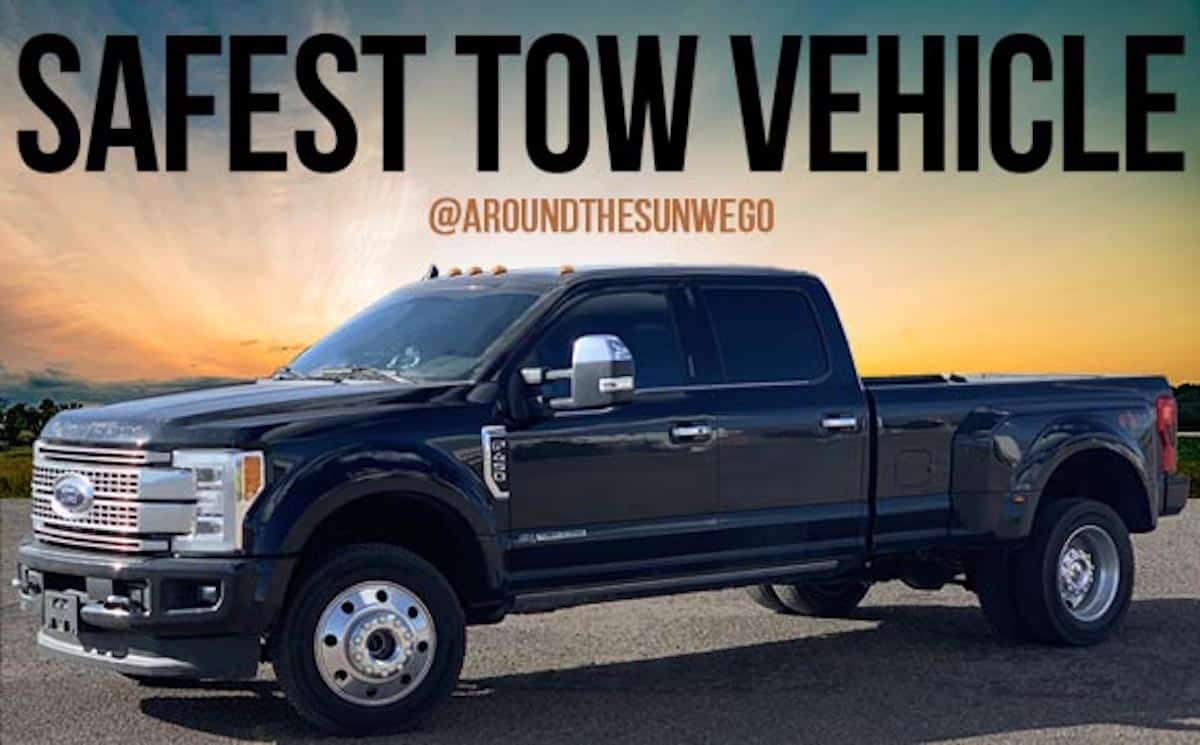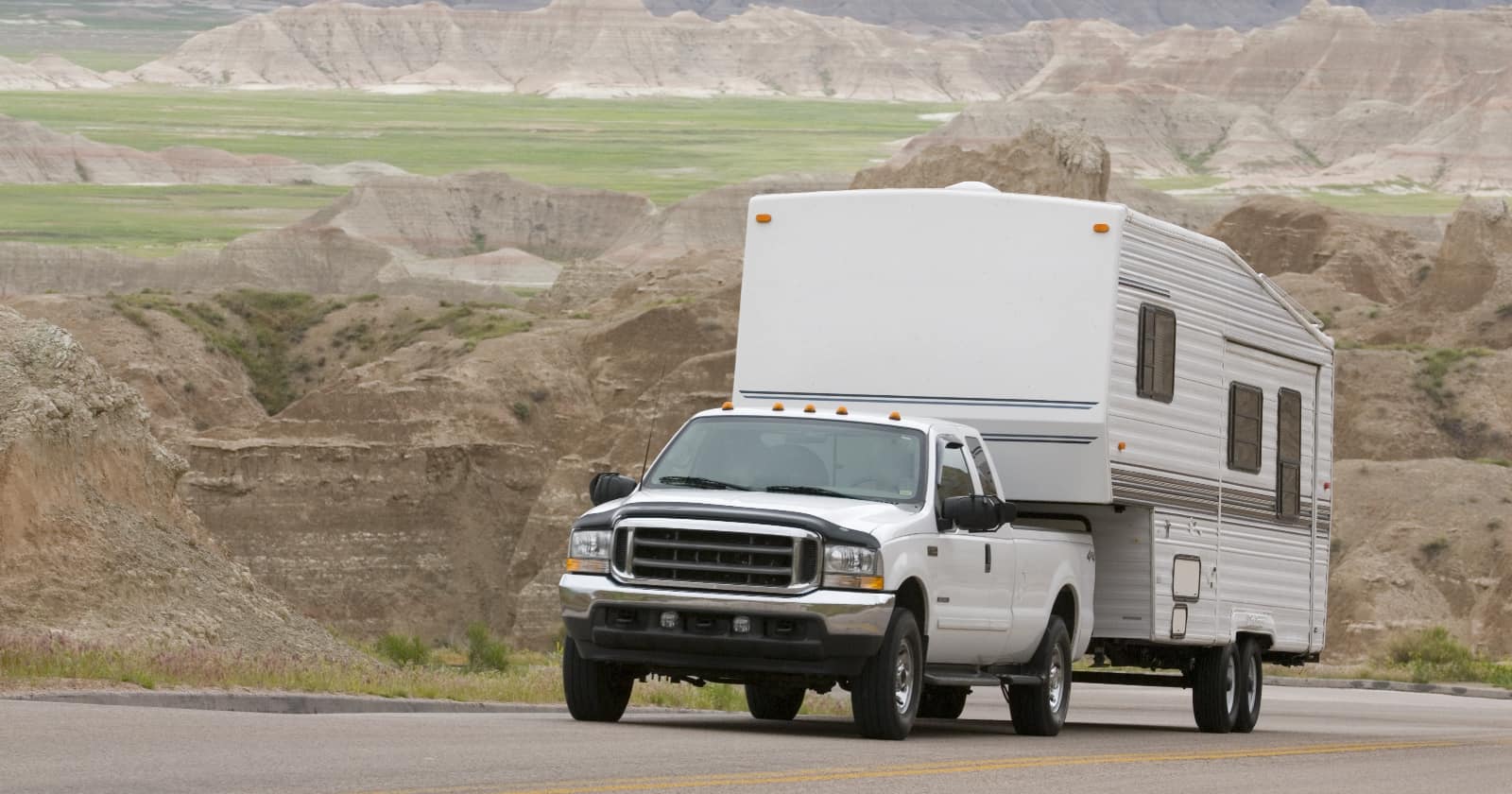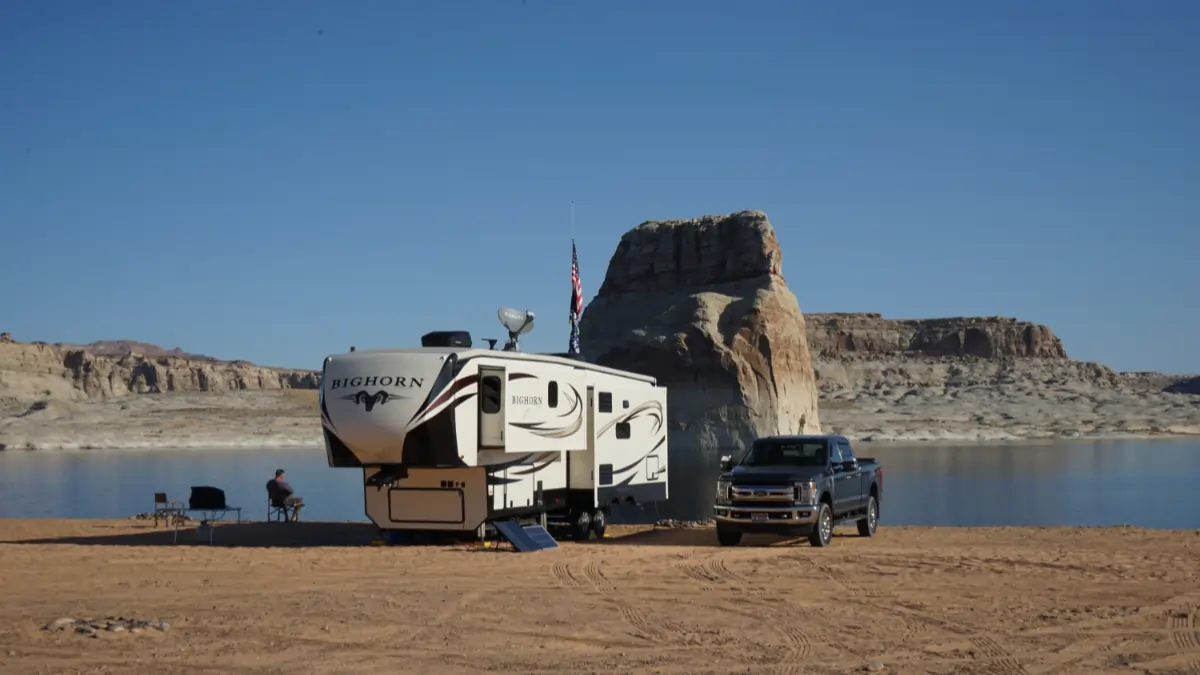An Honest Look At Tripod Fifth Wheel Stabilizers
If you own a fifth wheel, you might wonder about the necessity and effectiveness of tripod stabilizers. These devices have gained popularity for their role in enhancing stability during RV setup and use.
ARTICLE SUMMARY
What They Are Tripod Fifth Wheel Stabilizers: Essential accessories designed to reduce RV wobble and shaking, positioned under the kingpin for weight distribution.
Functionality: Enhances stability, especially in the nose area, complementing the hydraulic jacks at the RV’s corners
Effectiveness Factors: Depends on the fifth wheel’s weight and terrain; using leveling blocks and jacks increases stability.
Manufacturer Claims: Promises durability with customizable features but varies based on RV design and weight.
Drawbacks: May not prevent all types of movement and can add weight to the RV.
Evaluating Effectiveness: Professional opinions and DIY assessments suggest effectiveness in reducing shaking and rattling.
Alternatives: Scissor jacks, wheel chocks, and leveling blocks offer unique stabilization benefits.
Choosing Stabilizers: Factors include RV type, cost, quality, ease of setup, and weight balance.
Maintenance Tips: Regular checks and proper usage are essential for long-term stability and safety.
What Are Tripod Stabilizers?
Tripod stabilizers are essential accessories for fifth-wheel trailers, designed to minimize wobbling and shaking. They are placed under the kingpin, distributing weight more evenly and complementing the hydraulic jacks at your trailer’s corners. This additional support not only improves comfort by reducing movement inside the RV but also contributes to safety by preventing excessive shaking.
In this article, we delve into the debate surrounding tripod stabilizers and their impact on RV stability, offering insights to help you determine their value for your fifth-wheel trailer experience.
How Do Fifth Wheel Tripod Stabilizers Work?
Tripod stabilizers, positioned under your fifth-wheel trailer’s kingpin, enhance stability and reduce wobble, particularly in the nose area. They complement the support provided by the hydraulic jacks at the trailer’s corners, evenly distributing weight to minimize internal movement.
Importance of Leveling
Leveling is vital for the stability and safety of your fifth wheel. The leveling process evenly distributes weight, preventing uneven wear and ensuring functionality. Using a tripod stabilizer with leveling blocks and jacks enhances this stability, providing a more secure environment.
The success of tripod stabilizers largely depends on your fifth wheel’s weight and the terrain. They offer additional support on uneven grounds but may not completely eliminate wobble in all situations, as noted in Camper Report’s article. Selecting the right stabilizer model for your trailer’s weight is crucial. Combining tripod stabilizers with other methods like wheel chocks and leveling jacks further boosts your RV’s stability.
Market Claims From Stabilizer Manufacturers
Manufacturers claim their tripod stabilizers add stability and reduce movement in parked fifth wheels. Made from materials like steel or aluminum, these stabilizers promise enhanced durability. Features like adjustable legs or locking systems allow customization to your specific RV, optimizing stabilizer effectiveness. However, personal experience may vary based on factors like RV weight and design. It’s advisable to research and consult other RV owners and experts to find the best tripod stabilizer for your needs.
Potential Drawbacks Of Tripod Stabilizers
When considering tripod stabilizers for fifth-wheel RVs, be aware of potential drawbacks. While effective in minimizing front-to-back movement, they might not fully prevent side-to-side swaying, as highlighted in this RV Travel article. Additionally, their metal construction can add significant weight to your RV setup, and for some, the default leveling jacks might suffice, rendering a tripod unnecessary.
Evaluating Effectiveness
Experts acknowledge that tripod stabilizers can reduce shaking and rattling in parked fifth wheels. Notable models include the Ultra-Fab Heavy Duty King Pin Tripod Stabilizer and the Camco Olympian King Pin Stabilizer. For a DIY assessment, compare your RV’s movement before and after installing a stabilizer, ensuring proper setup under the kingpin. If the stabilizer significantly reduces movement, it’s likely effective for your needs.
Other Types of RV Fifth Wheel Stabilizers To Consider
In addition to tripod stabilizers, various stabilization options like scissor jacks, wheel chocks, and leveling blocks offer unique advantages for your fifth wheel RV.
Scissor Jacks
Scissor jacks, which can be operated manually or with a power drill, provide sturdy support. They are adjustable for different ground conditions but may not offer the same level of stability as tripods, particularly against forward and backward movement. Learn more about scissor jacks here.
Wheel Chocks
Essential for preventing unwanted wheel movement, wheel chocks like Flint Hill Goods Wheel Chock w/ Handle – Solid Rubber or X-chock wheel stabilizers create friction to maintain stability. However, they do not stabilize the RV’s structure as tripods do.
Leveling Blocks
Useful for creating a stable surface on uneven ground, leveling blocks aid in proper leveling but don’t specifically address forward or backward movement like tripods. Find out more about leveling blocks.
Key Factors to Consider When Choosing Stabilizers
- RV Type: Ensure the stabilizer is compatible with your RV, whether it’s a fifth wheel or travel trailer.
- Cost, Quality, and Material: Prioritize quality over price. Durable materials like steel or aluminum offer longevity.
- Ease of Setup and Storage: Opt for stabilizers that are easy to adjust and install, considering storage space constraints.
- Balancing Weight and Stability: The ideal stabilizer should not add excessive weight, maintaining vehicle stability without straining the suspension or frame.
- Choosing the Right Leveling Blocks: Select blocks compatible with your RV type, focusing on high-quality materials for optimal support.
These considerations will guide you in selecting the most suitable stabilization solution for your specific needs, terrain, and RV model.
Additional Tips and Techniques
Proper RV Jack and Stabilizer Usage
To maximize the benefits of your tripod RV fifth wheel stabilizer, combine it with proper RV jack and leveling techniques. First, ensure your RV is on level ground, using leveling blocks if necessary. After leveling, secure the wheels with wheel chocks. Then, place the tripod under the kingpin, adjusting its legs to support the weight optimally.
Importance of Regular Maintenance
Consistent maintenance is crucial for the longevity and effectiveness of your RV’s stabilizers. Regularly inspect all components for wear, rust, or damage. Lubricate moving parts as recommended by the manufacturer and monitor hydraulic fluid levels in your leveling jacks, topping off as needed. This routine ensures your RV remains stable and secure.
Do’s and Don’ts of RV Stabilization
Keep these guidelines in mind for effective RV stabilization:
- Do use a combination of leveling jacks, stabilizer jacks, and a tripod for comprehensive stability.
- Do check weight limits of your jacks and tripod to avoid overloading.
- Don’t rely solely on a tripod for leveling; its purpose is stabilization, not leveling.
- Don’t overlook signs of wear or damage. Regular checks are essential for safety.
Summing It All Up
Tripod stabilizers enhance stability in your RV’s nosecone area. By reducing wobble and supplementing the hydraulic jack stands at each corner, they create a more stable environment. They are particularly beneficial if you’re sensitive to floor movements or seek to minimize disturbances during the night.





In my opinion the only thing that a tripod stabilizer does for a fifth wheel is support the over hang. It does nothing for side to side movement. Just my opinion from using one.
I used a tripod stabilizer on my 29 foot fifth wheel and it helped maintain the stabilization very well. I’m not sure if I had had a 35foot + fifth wheel if it would have helped as much. Personally I think the longer the fifth wheel the less effective the tripod is. Probably has a lot to do with six feet on the ground versus four for a shorter unit.